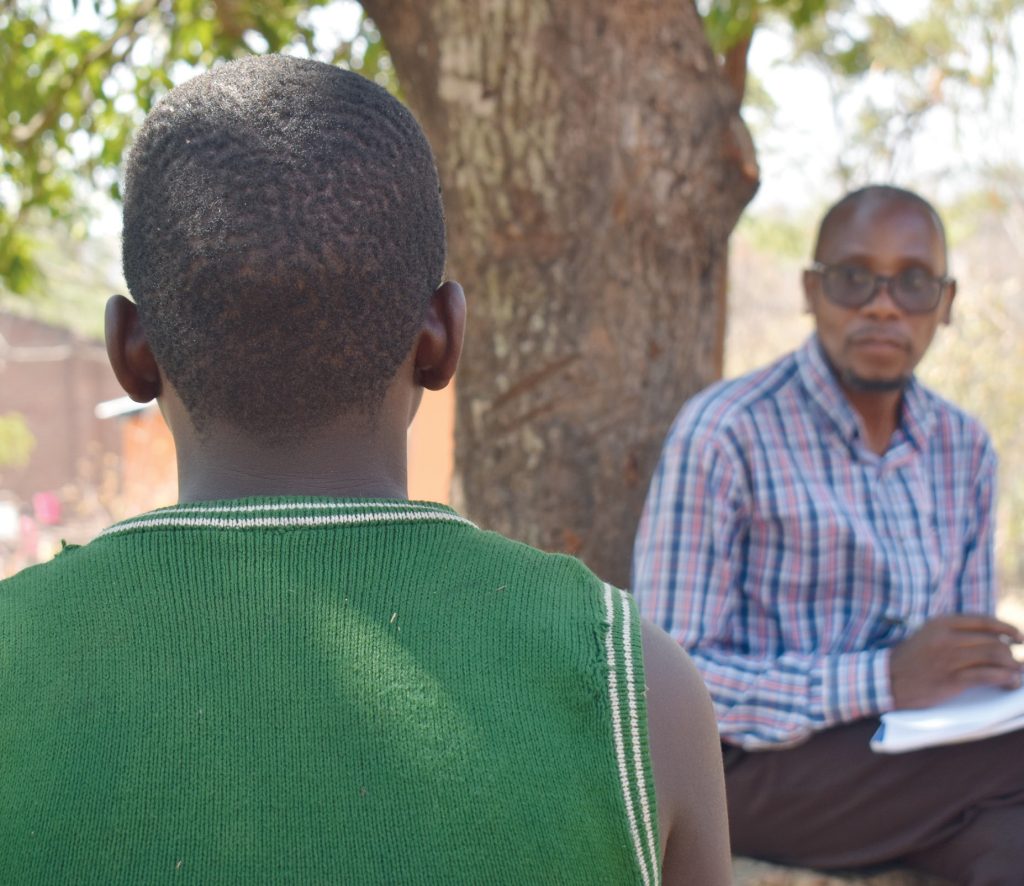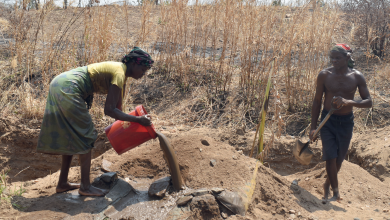Teen triumphs in safe abortion ruling, dares new MPs to act
A minor who challenged a law that forces sexual assault survivors to keep unwanted pregnancies wants newly elected lawmakers to modernise laws for the good of vulnerable groups.
“Make laws that protect the poor and ensure they work,” said the 16-year-old survivor of sexual assault in an interview at her rural home, about 22 kilometres southwest of Chileka International Airport in Blantyre.

She is too young to vote or contest for public office, but the pastor’s daughter, concealed as Alinafe, has expanded an abortion law that elected lawmakers in Malawi feared to touch for 61 years of self-rule.
Defiled by a jailed neighbour four times her age, she swayed the High Court to proclaim that a survivor of sexual assault has “a right to seek safe abortion automatically” from public and private hospitals in respect of Section 19 of the Gender Equality Act of 2013.
This opens a new exception to restrictive abortion law made by an all-male British Parliament in 1861, over a century before Malawi inherited it after independence in 1964.
The law, which arrived in 1925, only permits abortion to save a woman’s life, prescribing up to 14 years imprisonment for conducting an illegal abortion.
Healthcare workers and campaigners say the gag fuels secret abortions conducted by unskilled hands using wires, herbs, cassava sticks, soap and other life-threatening methods.
The Ministry of Health reports that abortions conducted outside clinics cause up to 18 percent of pregnancy-related deaths, one of the top five threats to safe motherhood.
Paradoxically, Malawian lawmakers maintain the 19th-century law despite the Law Commission’s recommendations released in 2015.
The same year, sexual and reproductive health researchers from the University of Malawi’s College of Medicine and the US Guttmacher Institute found that one in every six pregnancies ends in abortion.
“Out of the estimated 141 000 abortions performed in Malawi in 2015, approximately 60 percent resulted in complications that required medical treatment in a health facility. An estimated one-third of the women who experienced complications did not receive the medical treatment they needed,” read the findings.
Lead researcher Dr. Chisale Mhango, former director of reproductive health in the Ministry of Health, says restrictive laws or religious sermons cannot stop a woman from ending an unwanted pregnancy, but push her into deadly backstreet abortions
After nationwide consultation, the Special Law Recommendation on the Review of Abortion Laws, appointed by President Joyce Banda in 2012, proposed new grounds for safe abortion.
If passed into law, the proposed bill would allow skilled healthcare workers to terminate a pregnancy in case of rape, defilement or incest; if it affects a woman’s mental health; or her foetus was severely malformed to survive after birth.
New MPs were swearing in on Tuesday when Judge Mike Tembo passed judgment on Alinafe’s case, relaxing outdated laws their predecessors ignored.
At her rural school, the girl was learning how British missionaries brought Christianity and imperialism when the court granted all her wishes, K3 million compensation and litigation costs in a ‘wake-up for lawmakers’.
Alinafe and her mother endured the K15 000 motorbike trip to Chileka Health Centre near the rustic airport to safely terminate an ‘unwanted fruit of sexual violence’.
However, clinician Jenala Solomon sent them back, fearing the possible imprisonment for 14 years.
Alinafe sued the clinician, Ministry of Health and the Attorney General.
Weeks later, a doctor at Queen Elizabeth Central Hospital (Qech) granted their wish, deeming the then 14-year-old too young, traumatised and ill to give birth safely.
“It is harsh and inhumane to insist that such a girl keep the pregnancy in such circumstances,” Tembo ruled.
The accused included the Malawi Human Rights Commission (MHRC).
She accuses service providers, gatekeepers and watchdogs of disregarding the vulnerable girls’ liberty to decide whether to keep or safely terminate a pregnancy,
Looking back, Alinafe who was speaking in the presence of her parents, says: “I went to court because government officials let me down.
“They say it’s a crime to marry or have sex with a girl under 18, but I’ve lost count of my married peers. Five have children in my neighbourhood. Where is the government? Am I old enough to become a mother?”
Alinafe heard the 9 am court ruling after sunset when her parents, who have no smartphone, arrived from Nyale Institute near Qech, where they followed the 12-minute verdict online.
“It was happy. I slept peacefully. This has disturbed my learning since Standard Four. My ex-classmates are in Standard Eight, preparing for primary school leaving examinations, but I am repeating Standard Seven.”
Alinafe’s head teacher says she is an average learner, but sexual violence has affected her grades, concentration and confidence.
“She rarely associates with her peers,” he says. “I hope the judgement will give her peace of mind and liberate girls from quitting school due to early pregnancies and marriages—the neglected sexual violence which endangers children’s mental health, learning and futures. This will help many girls stay in school.”
In three years, Alinafe’s dream has shifted from becoming an educator like the head teacher to a doctor like her helper at QECH or a lawyer like those who helped her get justice.
Her father, a charcoal seller, peasant farmer and pastor, says laws must reflect Malawians’ will and challenges.
He states, “Laws should move with time. If they don’t promote our well-being, change them.
“Sadly, we keep changing lawmakers, not laws that oppress us. Our MPs just go to Parliament to warm their seats and enrich themselves, not to make laws better. They come to give us cash for votes and disappear when they win.”
His wife—a mother of four, including an 18-year-old with a nine-month-old baby—says her second-born’s agony should inspire new MPs to do “what they are elected to do”.
She says: “Our laws are mostly made by well-off men and women who live in towns where their daughters discreetly get safe abortion in private clinics. We cannot afford it. I hope the judgement will help victims of sexual violence to terminate unwanted pregnancy without harm or fear.”
In an interview, MHRC chairperson Chikondi Chijozi Jere said the constitutional rights watchdog takes the court decision seriously.
She said they will analyse it and improve the implementation of gender and SRH laws, including access to termination of pregnancy.
She said: “Oftentimes, those denied SRHR services are vulnerable people who cannot afford safe alternatives, so they secretly get services in places where they end up losing their lives or being forced to keep unwanted pregnancies in case of sexual violence.”
Chijozi asked Parliament to revisit SRHR laws, including the Termination of Pregnancy Bill not tabled in the House.
In 2021, former Parliament Health Committee chairperson Mathews Ngwale petitioned Parliament to discuss the three grounds proposed by the Law Commission, but the private member’s bill was struck off Parliament’s agenda by lawmakers who taunted him as Mr. Abortion.
In an interview on Wednesday, he said: “The girl’s victory marks a huge step for everyone fighting for the laws of Malawi to provide more rights for women and girls. As champions in Parliament, we were strengthened by women who die across the country while terminating pregnancies using crude methods. The records are there to see and the committee of Parliament needed to do something about it.
On September 16, Ngwale was voted out of Parliament alongside 123 others—about 64 percent of his cohort—including those who jeered him or refused to have a say on abortion laws.
He says: “If I were still in Parliament, I was going to say now the road is clear and it’s up to the current MPs to incorporate what the judge has ruled and debate what Malawians wanted, according to the Law Commission.”
The law commissioners, comprising experts, chiefs and religious leaders, reported that Malawians rejected legalisation of abortion in favour of the three new grounds aligned to the African Union protocol Malawi signed in Maputo, Mozambique.
The Maputo Protocol was embedded in the Gender Equality Act, which guarantees comprehensive SRHR services, but did not explicitly mention access to safe abortion until Justice Tembo expanded its interpretation on Tuesday.
Gender activist Emma Kaliya, who leads the Coalition for the Prevention of Unsafe Abortion, says the ruling vindicates unheeded voices for a law reform that stirred a backlash from some religious leaders, who call abortion sinful and a foreign agenda.
She said: “Unfortunately, parliamentarians and their political masters are afraid of religious leaders. I hope the youthful Parliament will think deeper and do the right thing.”
Alinafe’s litigation was backed by Nyale Institute, a human rights think-tank represented by Luntha Chimbwete and Irene Mathanga.
Nyale Institute executive director Godfrey Kangaude says policymakers should “listen to this girl and act with fairness and compassion”.
The lawyer stated: “The girl’s words pierced my heart. I didn’t realise she had silently carried the weight of this struggle until the end. No child should ever endure such pain. We claim to protect our children through many laws—but do we, really?”




